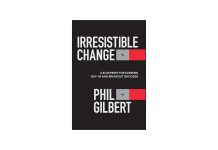
Any CEO who has a small or medium-sized private company poised to grow, or is looking at succession possibilities, needs a CFO more attuned to modern business growth practices than a traditional CFO.
The latter CFO is the type who is mainly focused on numbers. But they should not bring an accountant’s mindset to the job because that mindset is oriented toward compliance, risk reduction, and short-term calculations. A more modern-thinking CFO is a planner who thinks far ahead in multiyear time frames, is analytical, and asks a lot of questions about objectives and personal motivations. That type of CFO’s goal is to deliver a wow factor, not binders or PowerPoints full of comprehensive numbers.
Of course, such a modern CFO does deal with numbers but contributes them in ways that point out potential issues and identify opportunities for the organization. Many of those issues go to HR, including anything from compensation plans to performance reviews. They can involve determining raises or building a case to fire someone. It’s in these types of scenarios when collaborating with HR that a CFO becomes HR’s best friend.
Impact on HR
The modern CFO’s role is changing. And in the process, evolving CFOs can change companies for the better. Let’s take a look at how they can impact HR.
- Facilitate forward-looking performance data. Having the specific and right amount of data is essential for these HR-related situations of performance reviews, firings, etc. Collaborating with HR in various ways, the CFO who is more advanced in a performance-evaluation context can take the department and the company to a higher level.
For example, take the annual performance review. The traditional review that many companies use to evaluate employees is not enough. Why? Because they’re based on looking back, and in some cases way back. What good does it do, really, to tell your employee during the annual performance review in January about what they messed up the previous March or April?
With a different system and a more involved CFO, the company doesn’t have to wait nine or 10 months to act regarding sub-par performance and the underlying problems. Working with the CFO, HR can develop objectives that make sense and are verifiable. Instead of looking backward, KPIs and weekly touchpoints provide numbers that help everyone chart progress weekly. There’s clarity in that you can see if goals are on track or obstacles have arisen.
- Help create a culture that retains top talent. In the wake of the Great Resignation, this has never been truer: You want your best performers to feel wanted by your leadership team, and it’s vital the work culture combines values such as integrity, inclusiveness, authenticity, and trust. The modern-thinking CFO, more conscious of work culture than the traditional CFO, can help the HR manager and the CEO ensure the elements are in place to retain their top talents. Some companies let problems fester long past the point where they should have been addressed, and an effective CFO can not only help deal with the issues quickly but lead the way to head off potential trouble in the future.
- Ensure employees have the right tools to succeed. Too often, employees’ jobs are made harder by not having what they need to succeed. And sometimes, they’re assured they will receive those tools but do not, often due to the company’s cost concerns or disorganization.
What resources are lacking, or what in-house training programs are necessary? The CFO, with an eye on the big picture, can help decide how to spend money properly in order to bring the resources and training necessary for employee and company growth.
A strategic partner
Some companies have a CFO who is the wrong person for the job. This CFO may be a friend of the CEO, a loyal employee who has been with the company since the beginning, and a hard worker. But they may not be the strategic thought partner needed by the CEO of a growing company.
I don’t want to disparage credentials like being a certified public accountant – I’m a CPA myself – but that training does not prepare anyone to be a modern-thinking CFO. An accountant promoted up the chain to CFO may still be thinking too much in the defensive posture that characterizes a lot of accounting work. That person will diligently point out the risks of any proposed new investments and initiatives but not have the initiative to risk proposing new investments. Very few of these CFOs are forward-looking enough to be thinking about the multiyear journey to an objective. A mindset that values preserving the status quo will not be a source of the growth ideas that CEOs want and need to hear.
Without a more modern type of CFO, a CEO is likely to feel exhausted. Likewise, HR, which at most companies, has its hands full. A CFO who is about growth isn’t going to change everything for the better in a couple of weeks. But finding solutions starts with asking the right questions, those that were disregarded or overlooked previously when the company had a traditional CFO who didn’t look far ahead.
And knowing which questions to ask and how to do a deep dive below the numbers are what makes a modern CFO impactful on an HR department and a company. It’s not just about the numbers, but making better use of them, to get the most out of your people.




